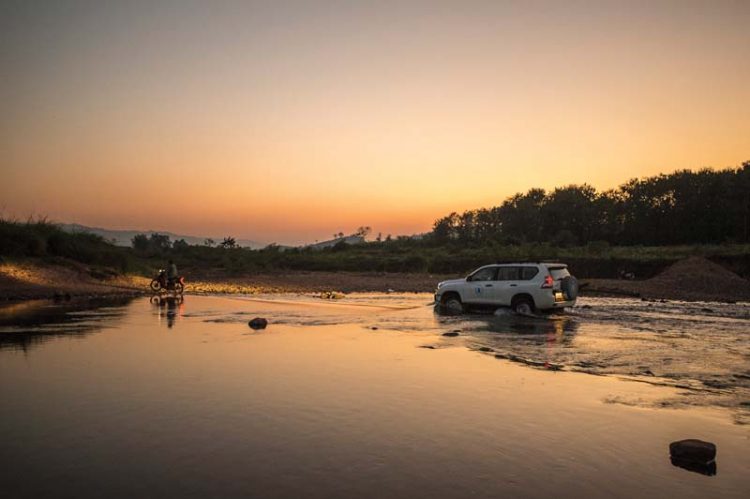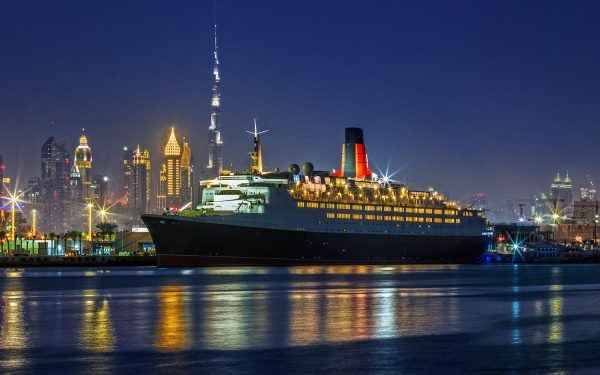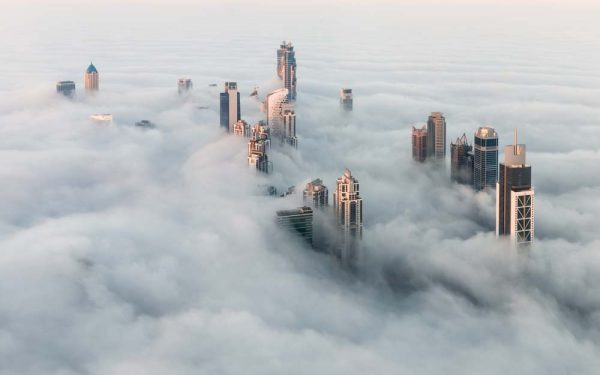There is a popular riddle that involves a farmer trying to cross a river in a small boat. He can only take one item at a time, and seemingly every permutation has a negative outcome. If he leaves his chicken and fox on the riverbank, the fox will eat the chicken. If he takes the fox, the chicken will eat the grain. Who can he take? How can he ensure safe passage for all?
It may be a child’s puzzle, but it bore similarities to a situation that affected very real communities in Syria in 2016.
At a time when ISIS controlled most of northern and eastern Syria, large numbers of displaced people were trying to seek refuge in Jordan through its north-eastern border with Syria. But due to the infiltration of ISIS fighters into the population, they were refused passage. Eventually, some 85,000 people – including many women, children and elderly – found themselves living in a barren desert where scorpions and snakes were the only sign of life.
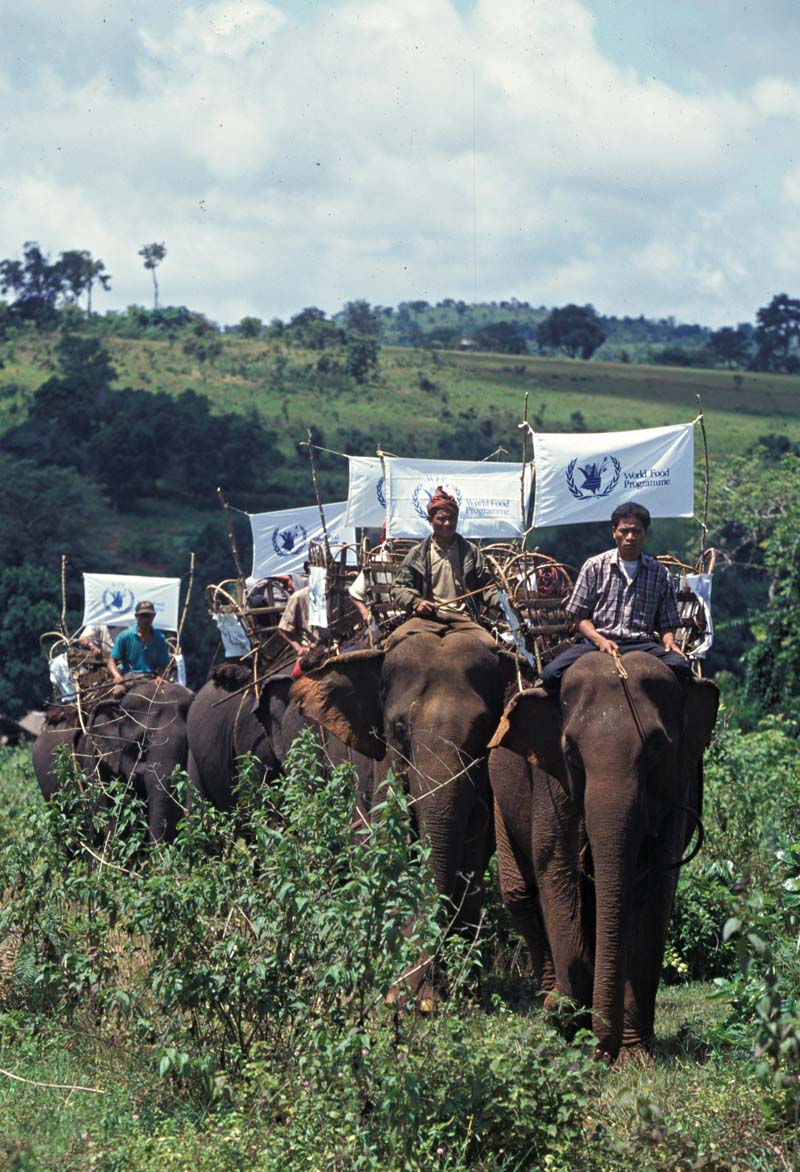
“In cooperation with the Jordanian authorities, Syrian displaced people were allowed to cross the border to receive life-saving humanitarian assistance and return to their make-shift settlements. However, when ISIS elements embedded among the displaced population carried out a terrorist attack on an army outpost killing nine soldiers, the area was declared a military zone to which all civilians were denied access,” recalls World Food Programme’s (WFP) UAE Director and GCC Representative, Mageed Yahia. “So, we had to find alternative solutions.”
WFP found itself between a rock and a hard place. It could not provide people with food in Jordan because the population could no longer cross the border; and at the same time all roads from Syria were cut off. The solution? A crane placed right on the Jordanian side of the border delivering life-saving assistance into what was effectively a no-man’s land. This was the first time WFP deployed cranes to deliver assistance, and media outlets promptly seized upon the story.
This is just one example of an innovative solution being used by WFP to provide vital food assistance to populations affected by war or natural disasters. Since it was set up in 1961, initially as a three-year experimental programme headquartered in Rome, WFP has frequently had to engage in lateral thinking to get around logistical and other challenges. The agency’s inception coincided with a deadly earthquake in Iran which caused major devastation and loss of life. It was this crisis which pointed to the global need for an agency that could provide emergency food aid to people in need, often in remote corners of the world. Since then, WFP has extended its mission from one of Saving Lives to one that includes Changing Lives, helping vulnerable communities recover and thrive after they have suffered a setback.
The World Food Programme uses everything – from airplanes to mules, trucks to donkeys, road to river and sea to air – to come to the rescue of those in need. One of its increasingly important strategic hubs for the deployment of life-saving supplies is Dubai.
The depot
A forty-minute drive from Dubai’s city centre leads out into the desert – passing yards replete with gleaming white trucks and vast stretches of warehouses that have, over the last seven years, dispatched around 29,000 metric tons of goods to 72 countries around the world. “WFP’s mission to save lives and change lives wouldn’t be possible without the generous support of our donors and partners,” says Yahia. “Our GCC partners, including the United Arab Emirates, are among the biggest contributors for WFP’s humanitarian emergencies. Since our establishment in Dubai in 2001, our partnership with the UAE government has not ceased to evolve in many ways. The UAE is now one of our top 10 donors globally. From our office in Dubai’s International Humanitarian City (IHC), we are able to offer a much-needed range of humanitarian and development services to various operation around the world”.
“We’ve five hubs around the world, located in Panama, Accra, Brindisi, Subang and Dubai which has quickly become the largest of them all,” Yahia adds. Positioned at global cross-roads, the hub in Dubai has proven to be a strategic location for the deployment of life-saving supplies.
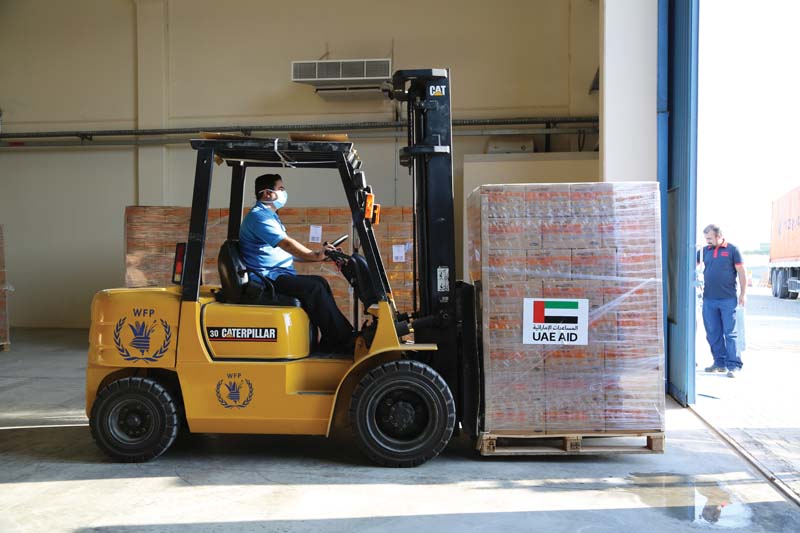
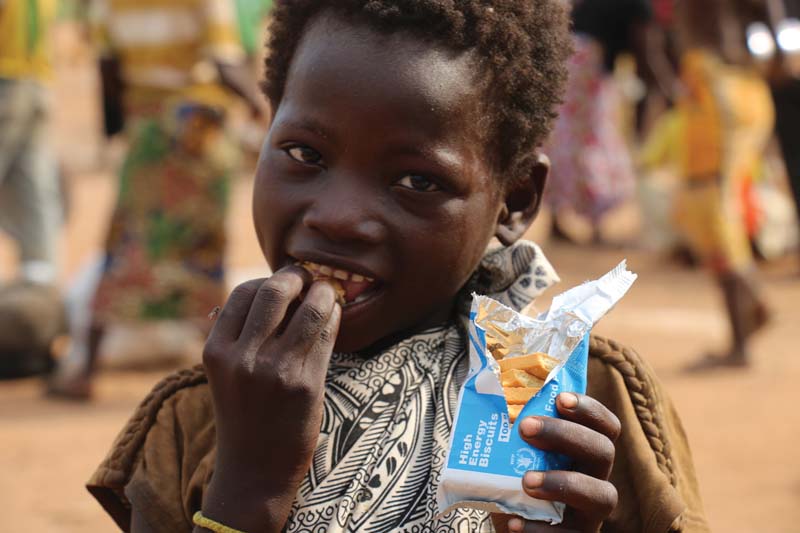
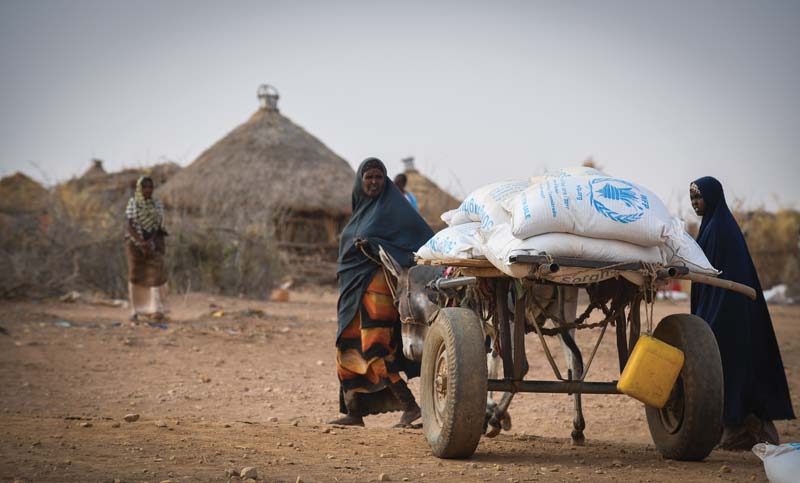
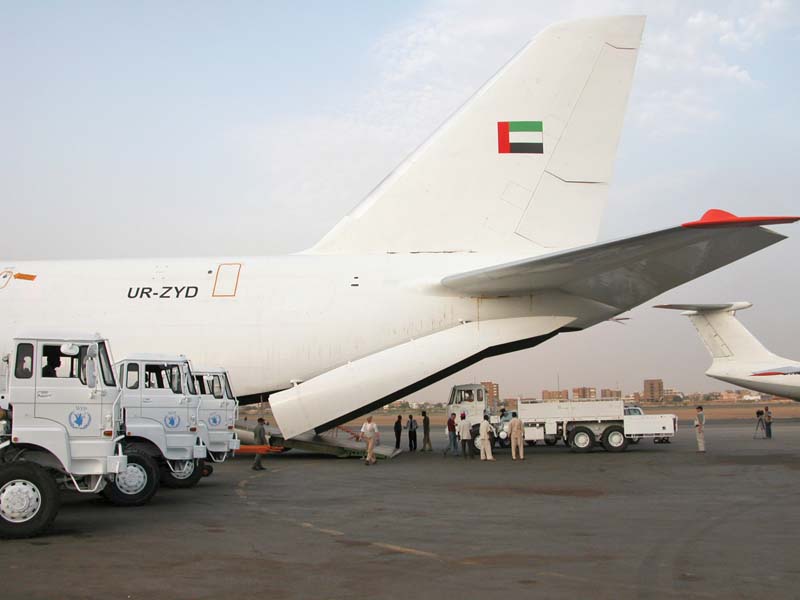
Inside its warehouses are teams working tirelessly to ready the next batch of items for deployment. Leading logistics support for the humanitarian community, WFP manages emergency stocks of both food and non-food items for UN agencies, governments and non-governmental organisations which are stored in its warehouses and dispatched by WFP teams when the need arises. There are tents large enough to house entire families, and prefabricated units that can be erected into offices in a matter of hours. There are water sanitation systems that can filter water, making it safe for consumption. There is also have a system that is able to convert urine into drinking water. There are also high-energy biscuits – which are easily transported and distributed as soon as a crisis strikes, and vaccines which are carefully stored in chillers at 2 to 8 degrees Celsius and shipped in boxes with ice packs and a temperature-monitoring device. Reducing the turnaround time is vital in times of crisis; each package has an identification number and is ready for dispatch in just two hours.
Vehicles are essential to WFP’s field operations, which is why the organisation established its global fleet centre in Dubai in 2008. The centre supplies road transport to all WFP operations around the world, which lease vehicles on a four-year basis and then return them to Dubai, where they are auctioned off. Since 2008, around 4,000 vehicles have been bought, leased, deployed and auctioned from Dubai – with armored cars being lent out to locations including Yemen and Libya. Armoring a basic vehicle used to cost US$200,000 when done abroad. Procuring the same services in UAE helped cut this cost in half, freeing up much-needed funds for the provision of food assistance.
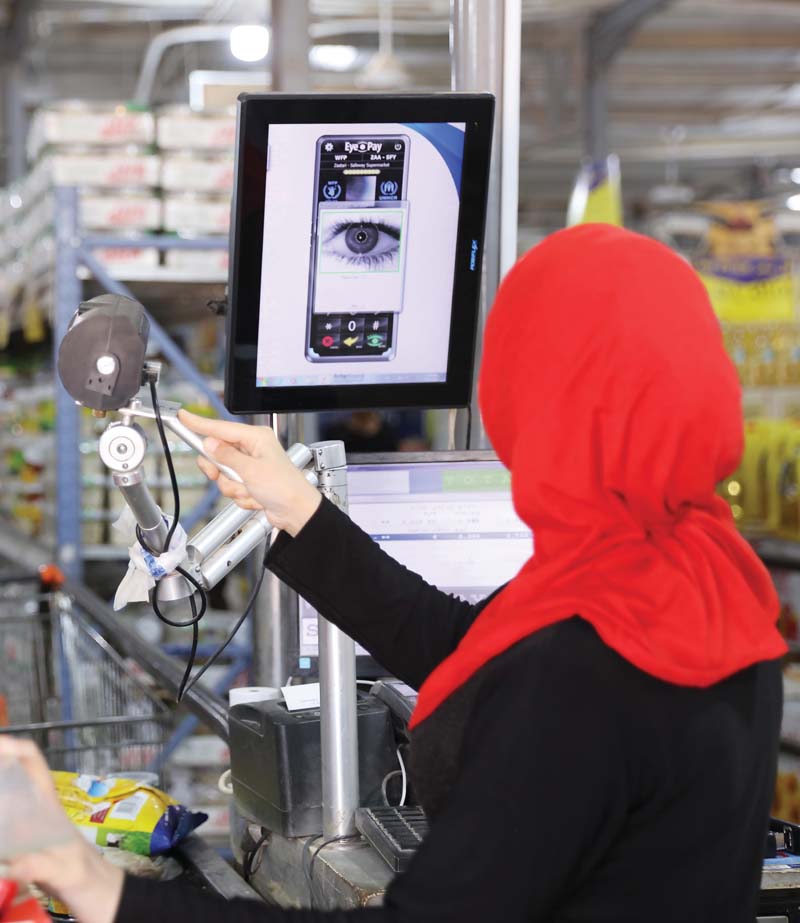
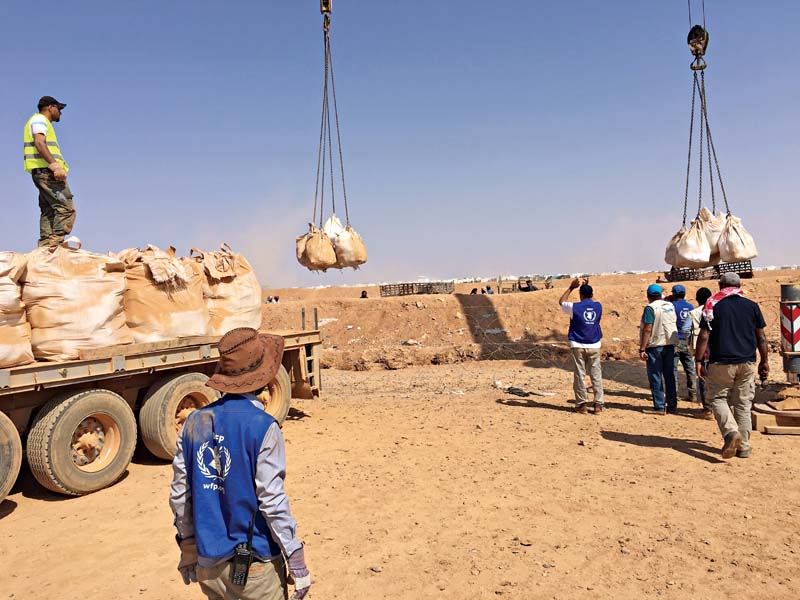
Also vital to frontline humanitarian response are strong telecommunications. To ensure uninterrupted connectivity at all times, WFP Dubai hosts the Fast IT and Telecom Emergency Team (FITTEST) which, in times of crisis, re-establishes critical IT and telecom services. From Dubai, FITTEST teams can deploy worldwide within 48 hours, establishing and maintaining communications infrastructure and services for emergency response teams.
As a frontline humanitarian agency, WFP often operates in conflict areas, war zones and harsh environments, where security concerns challenge the safe delivery of assistance to those in need. WFP uses all possible means to ensure food is delivered and lives are saved. This includes delivery using elephants, mules, trucks and ships. When land or sea access becomes impossible, the organisation takes to the skies to deliver food from great heights.
“Airdrops are the last resort for us in delivering food in an emergency due to their high cost,” says Yahia. One of the most taxing operations he participated in was the airdrop operation in Deir ez-Zor, Syria, where more than 100,000 civilians were besieged by ISIS.
“Normally we drop food from an altitude of 5,000 feet, but this time we had to drop from 16,000 feet for fear of missile attacks. We parachuted GPS-guided food palettes from that height for over two years until the siege was lifted.”
From rapidly organising life-saving supplies to using diplomacy in tense negotiations, WFP’s skillset needs to be far-reaching and varied. “Seeing the impact of our work on the ground in saving lives and changing lives is indescribable”, says Yahia.

